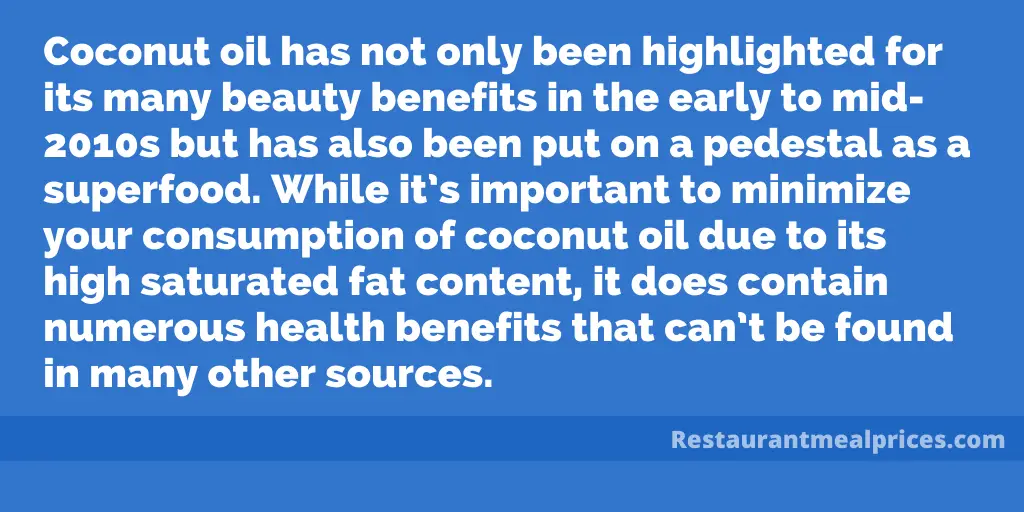Coconut oil saw a huge surge in popularity between 2011-2015, and became known as a cure-all for beauty problems. But what about cooking with this bathroom staple? Are there really that many benefits to cooking with coconut oil, and can it be substituted for butter and other oils? In this article, we give you the lowdown on cooking with coconut oil, so you can know how often you should be reaching for it in your pantry.
What is coconut oil?
So, what is coconut oil in the first place and where does it come from? Coconut oil is derived from the wick, meat, and milk of the coconut palm fruit, even though it contains, in fact, mostly saturated fat.
Today.com tells us more on the properties of coconut oil:
“Coconut oil is 100% fat, 90% of which is saturated. It comes from the flesh of a coconut, and is popular in many Southeast Asian countries. Because these countries are associated with lower rates of heart disease, it’s easy to assume that coconut oil is healthy. Nutrition-wise, one tablespoon of coconut oil contains 130 calories and 14 grams of fat, 13 of which are saturated. For comparison, one tablespoon of olive oil has 120 calories and 14 grams of fat, only two of which are saturated.”
How to cook with it
Coconut oil is an extremely versatile oil, and can be used as a substitute for a variety of oils, and even butter in some cases. However, it’s important to note that coconut oil cannot be used interchangeably with butter, so don’t try to use it as a substitute in recipes that don’t call for it.
Bon Appetit gives us their thoughts on cooking with coconut oil:
“Coconut oil is ideal for searing, sautéing, and, depending on the grade, even frying. (We really like using it to pop stovetop popcorn.) When it comes to baking, it’s a better substitute for butter than liquid-at-room-temperature oils, like olive oil or canola oil, but nothing performs exactly like butter. If you’re interested in baking with coconut oil, we recommend using only tested recipes that identify it as an ingredient, as in this chocolate pound cake. Because butter has a greater water content than coconut oil as well as a different melting point, the two cannot be used interchangeably.”
Nutritional highlights
Coconut oil has not only been highlighted for its many beauty benefits in the early to mid-2010s but has also been put on a pedestal as a superfood. While it’s important to minimize your consumption of coconut oil due to its high saturated fat content, it does contain numerous health benefits that can’t be found in many other sources.

BBC goodfood tells us more about the nutritional highlights of coconut oil:
“Fat is an essential part of a healthy, balanced diet — it is a source of essential fatty acids and helps the body absorb fat-soluble vitamins such as A, D, E, and K. Although studies examining the health benefits of consuming coconut oil over other fats are scarce, coconut oil has one notable difference. Coconut oil contains a high proportion of a type of fat called Medium Chain Fatty Acids (MCFAs), most notably in the form of lauric acid. MCFAs reputably have various health benefits including being less likely to be stored in the body as fat and more readily used as a source of energy.”
Looking to see how your favorite restaurants use coconut oil? If you’re looking for recipe inspiration or you want to see where you can enjoy a top-quality meal at your favorite restaurant, check out our list of all restaurants to compare food menus.

